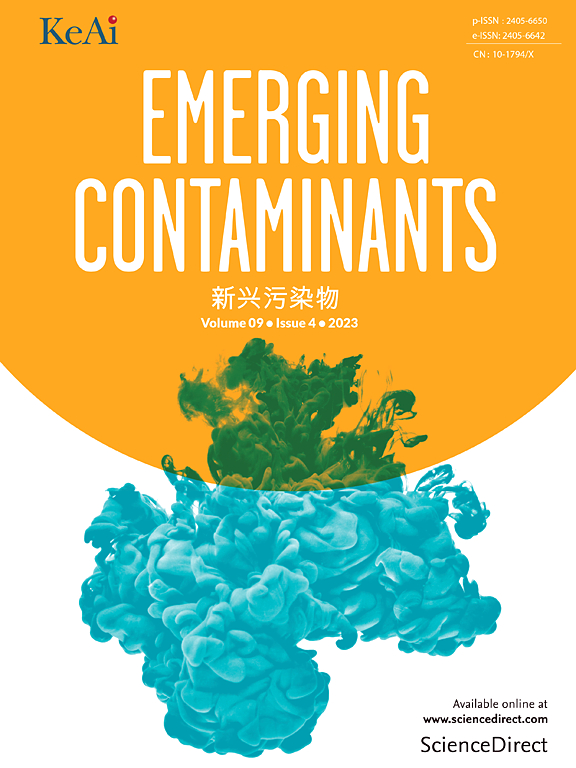Anion-mediated pathways in organophosphate degradation in the Oconee River watershed in Georgia
IF 6.9
2区 环境科学与生态学
Q1 ENVIRONMENTAL SCIENCES
引用次数: 0
Abstract
The degradation of organophosphate pesticides in aquatic ecosystems is influenced by various environmental factors. This study investigates the influence of nitrate, sulfate, and phosphate on the degradation of malathion, a commonly used organophosphate pesticide, in the North Oconee River watershed in Georgia. Microcosm experiments were conducted to simulate environmental conditions and assess both microbial and non-microbial transformation pathways. Nitrate, sulfate, and phosphate were found to enhance malathion degradation through microbially mediated oxidative and hydrolytic pathways. The presence of mercuric chloride, which suppressed microbial activity, resulted in slower degradation rates across all conditions, underscoring the pivotal role of microbial communities in pesticide transformation. Non-targeted analyses identified key degradation products, including malaoxon, succinic acid, and diethyl succinate, primarily under nitrate and sulfate conditions, supporting the involvement of these anions in the degradation process. These findings highlight the complex interactions between nutrient dynamics and pesticide persistence, offering valuable insights for sustainable water management and pollution control in agro-impacted freshwater systems.

阴离子介导的途径在有机磷降解奥科尼河流域在格鲁吉亚
有机磷农药在水生生态系统中的降解受多种环境因素的影响。本研究调查了硝酸盐、硫酸盐和磷酸盐对乔治亚州北奥科尼河流域马拉硫磷(一种常用的有机磷农药)降解的影响。通过微观实验模拟环境条件,评估微生物和非微生物转化途径。发现硝酸盐、硫酸盐和磷酸盐通过微生物介导的氧化和水解途径促进马拉硫磷的降解。氯化汞的存在抑制了微生物的活动,导致在所有条件下的降解速度较慢,强调了微生物群落在农药转化中的关键作用。非目标分析确定了主要在硝酸盐和硫酸盐条件下的关键降解产物,包括丙二醇、琥珀酸和琥珀酸二乙酯,支持这些阴离子参与降解过程。这些发现突出了营养动态和农药持久性之间的复杂相互作用,为受农业影响的淡水系统的可持续水管理和污染控制提供了有价值的见解。
本文章由计算机程序翻译,如有差异,请以英文原文为准。
求助全文
约1分钟内获得全文
求助全文
来源期刊

Emerging Contaminants
Medicine-Public Health, Environmental and Occupational Health
CiteScore
10.00
自引率
6.70%
发文量
35
审稿时长
44 days
期刊介绍:
Emerging Contaminants is an outlet for world-leading research addressing problems associated with environmental contamination caused by emerging contaminants and their solutions. Emerging contaminants are defined as chemicals that are not currently (or have been only recently) regulated and about which there exist concerns regarding their impact on human or ecological health. Examples of emerging contaminants include disinfection by-products, pharmaceutical and personal care products, persistent organic chemicals, and mercury etc. as well as their degradation products. We encourage papers addressing science that facilitates greater understanding of the nature, extent, and impacts of the presence of emerging contaminants in the environment; technology that exploits original principles to reduce and control their environmental presence; as well as the development, implementation and efficacy of national and international policies to protect human health and the environment from emerging contaminants.
 求助内容:
求助内容: 应助结果提醒方式:
应助结果提醒方式:


